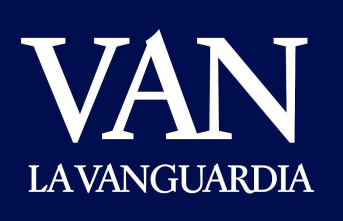What reading can be made of the result of the French elections? How to explain that Le Pen has exceeded 40% of the votes in the second round and the traditional parties have practically disappeared? With a historical perspective, we are seeing the result of the paradigm shift that meant going from the “glorious thirty” to the “ominous forty”.
Indeed: the remote origin of the processes that favor the growth of the extreme right can be found in the conservative revolution of the eighties. The most important ally of the neoliberal positions has been the Laffer curve, despite its theoretical and empirical poverty. Until the 2008 crisis, the new paradigm was developed thanks to growing debt, private (growth on credit) and public (welfare state on credit). The sum of both showed its infeasibility in said crisis and gave rise to a severe correction in Europe.
Since that date, the prevailing mental scheme has been definitively broken, the idea of linear progress has been abandoned and a growing and unsatisfied demand for protection has been manifested by the State itself and Europe. This demand, for historical reasons, is particularly relevant in France. When the system does not protect, the classic parties lose legitimacy and populism increases, especially that of the extreme right. In recent decades, the risk of poverty, inequality and economic and social polarization has grown; social mobility has ceased to be upward; the gap between expectations and realities has increased and, consequently, also discomfort and resentment.
The “refoundation of capitalism” (Sarkozy, 2008) is still pending. Each new crisis increases inequality and polarization: that of 2008, the pandemic, the war in Ukraine (for example, food inflation hits the popular classes more severely).
The data from the first round of the French elections can be read in the light of the preceding reflections. More socialist conservatives lose 20 points compared to 2017, while Macron advances four and Le Pen two. If we add Zemmour, the extreme right exceeds, for the first time, 30% of the votes.
Those who feel excluded are losing confidence in traditional political mediators and taking refuge in unprovable promises. In their eyes, it is incomprehensible that a rich country, whose GDP increases regularly, cannot treat all its citizens equally.
There is a second element that overlaps the malaise to explain the rise of the extreme right: the persistent use of immigration, often with blatant falsehoods, to instill fear and hatred. It is known that xenophobia, the instinctive rejection of the foreigner, of the different, is a universal atavism, of which ancient references can be found. The extreme right, everywhere, exploits this atavism, even at the cost of the gratuitous suffering of all, both immigrants and lifelong citizens, especially the most vulnerable.
In short: if a growing number of people feel that the social contract has been unilaterally broken by the public powers and, furthermore, feel threatened by the new immigrant neighbors… the extreme right will continue to advance. In this regard, it will be very interesting to see what happens in France in 2027, when Macron will not be able to present himself and we once again risk the future of the European project, our last bastion.
4












